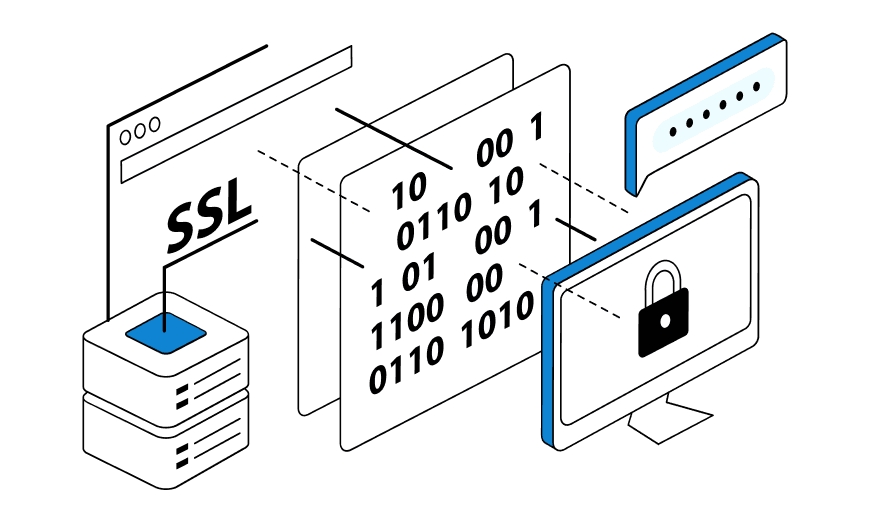
Cryptocurrency exchanges attract millions of users from around the world, but not all countries view digital assets favorably. Some platforms block access from certain regions, and authorities can monitor traders’ transactions. In addition, public networks pose a threat of data leakage, making exchange accounts vulnerable to hackers.
In such circumstances, VPNs or mobile proxies become important tools to ensure privacy and protection when trading cryptocurrency. With the help of a VPN, you can hide your real location, bypass regional restrictions, and encrypt internet traffic. Let’s understand why you need a VPN on a cryptocurrency exchange, how to use it correctly and configure it to work.
Why do I need a VPN on a cryptocurrency exchange?
Using a VPN for cryptocurrency exchanges provides several advantages at once:
- Bypassing blocking – if the exchange is banned in your country, a VPN will help you access through the IP of another region.
- Hiding the real IP – your real address will remain hidden, which reduces the risk of surveillance by third parties.
- Data protection – it encrypts your connection, preventing logins, passwords and other sensitive information from leaking.
- Protection from hackers on public networks – if you’re trading from Wi-Fi in a cafe, a VPN will prevent attackers from intercepting your traffic.
- Traveling exchange access – some platforms restrict access based on geolocation, but a VPN for cryptocurrency helps bypass such bans.
Using a VPN for cryptocurrency exchanges is a powerful means of data protection and privacy.

How to use VPN for cryptocurrency trading?
To safely work with cryptocurrency exchanges via VPN, it is important to follow a few rules:
- Choose a verified service – preference should be given to paid services with a good reputation that do not keep logs.
- Use servers in countries without strict regulation of cryptocurrencies – this will ensure a stable connection without the risk of blocking.
- Enable VPN before logging in to the exchange – run it first and then log in to your account to avoid IP discrepancies.
- Avoid frequent changes of IP addresses – sudden changes of location can arouse suspicion on the part of the exchange and lead to account blocking.
- Disable WebRTC in the browser – this function can reveal your real IP even if the VPN is active.
By following these recommendations, you can reduce risks and safely use VPN for cryptocurrency exchanges.
Setting up a VPN for cryptocurrency exchanges
Before you use a VPN for cryptocurrency trading, you need to configure it correctly. Follow the steps below to work correctly with a cryptocurrency exchange:
- Choose a reliable service – for example, NordVPN, ExpressVPN or ProtonVPN, which do not store logs.
- Install the app on your device – download the client for Windows, macOS, Android or iOS.
- Select a server in a suitable country – it is preferable to use regions with a loyal attitude towards cryptocurrencies.
- Activate Kill Switch – this feature will prevent data leakage in case of connection failure.
- Use services such as proxy verification for greater security.
- Check your IP address before logging in – make sure your IP has changed using services like whatismyipaddress.com.
After these steps, your connection will be encrypted and your access to the exchange will remain stable and secure.
How to choose a VPN for trading?
Choosing a service for cryptocurrency trading is not just a matter of convenience, but a critical decision on which the security of your assets depends. A mistake in the choice can lead to data leakage, account lockout or even loss of funds.
Criteria for choosing a VPN for crypto trading
When choosing a service to work with crypto exchanges, it is important to consider the following parameters:
- No-logs policy (No-logs policy) – the service should not store connection history so that your online activities remain anonymous.
- Kill Switch support – if the VPN suddenly goes down, this feature instantly blocks the Internet connection, preventing IP address leakage.
- High speed and low ping – the comfort of working with the exchange depends on it, especially during active trading.
- Encryption and security protocols – it is better to choose one with 256-bit AES encryption and modern protocols (WireGuard, OpenVPN Windows).
- Wide network of servers – it is important that the service offers servers in countries where cryptocurrency exchanges operate without restrictions.
- Compatibility with different devices – the VPN should support Windows, macOS, Android, iOS, and even routers.
When choosing to bypass crypto exchanges blocking via VPN, focus on the balance between security, speed and stability of the connection.
Free vs. paid VPNs for cryptocurrency exchanges
Some users prefer free services for trading crypto via VPN, but this choice can turn into serious problems:
- Limited speed – free services cut connection speed, which is critical when trading.
- Limited traffic volume – most free VPNs have a limit of 500 MB – 2 GB per month, which is not enough for active trading.
- Lack of protection – some free service providers keep logs and sometimes even sell user data to third parties.
- Limited choice of servers – free services offer few locations, which reduces the possibility of bypassing blocking.
Paid VPNs, like betting proxies, provide reliable protection and stable operation, which makes them the only reasonable choice for cryptocurrency trading.

How does a VPN help bypass cryptocurrency exchange blockades?
Some countries (e.g. China, Russia, Turkey) impose restrictions on access to cryptocurrency exchanges, and the platforms themselves may ban users from certain regions. VPN helps to bypass such restrictions by changing the IP address.
The main ways to bypass blocking with a VPN:
- Using servers in countries without restrictions – connecting via IP from Europe, the US or other neutral regions allows you to access exchanges.
- Bypassing DPI (Deep Packet Inspection) – advanced services use traffic masking, hiding it even from Internet providers.
- Split Tunneling – allows only crypto exchange traffic to be routed through the VPN, while leaving the rest of the traffic unchanged.
- Using Double VPN – creates an additional level of anonymity by sending traffic through two servers.
These methods make VPNs an indispensable tool for traders working in restricted access environments.
Best VPNs for cryptocurrency exchanges
Choosing a VPN depends on your goals, but some services have proven to be the best for cryptocurrency trading.
Top 3 VPNs for cryptocurrency trading:
NordVPN – high speed, strict no-logs policy, built-in Kill Switch, Onion over VPN support.
ExpressVPN – strong encryption, high stability, extensive network of servers.
ProtonVPN is a secure Swiss VPN with a focus on privacy.
These services provide reliable data protection and stable connection without significant speed loss.
Conclusion: security of cryptocurrency trading via VPN
Using a VPN when working with cryptocurrency exchanges is not only a way to bypass blocking, but also an important tool to protect privacy and security of funds. A reliable VPN or proxy for electronic payments helps to hide the real IP address, protect data from leaks and minimize risks when trading. However, it is important to choose proven paid services and set up the connection correctly to avoid problems and not to lose access to the exchange.









